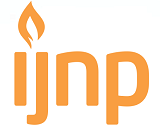PENURUNAN KECEMASAN REMAJA KORBAN BULLYING MELALUI TERAPI KOGNITIF
Abstract
Bullying causes many negative impacts to the victims, one of them is anxiety. Anxiety influence learning achievement for student. Therefore, it is important to take therapy to reduce anxiety. This study aims to determine the effectiveness of cognitive therapy in reducing anxiety in adolescents’ victims of bullying. Subjects in this study were SMA’S students who are victims of bullying. The research design used True Experimental Pre-Post Test With Control Group. Sample was 22 respondents with simple random sampling technique. Researchers used Olweus Bully / Victims Questionnaire to identify students who are victims of bullying and HARS (Hamilton anxietyrating scale) (rxx '= 0.617) to identify anxiety before and after therapy. The results of this study was cognitive therapy reduce anxiety level in adolescent’s victim of bullying (p-value= 0,002). Another finding in this study, there was a difference of quantitative meetings on respondents when getting therapy, it depends on the number of negative thoughts and the ability of respondents to control negative thoughts.
Keywords
Full Text:
PDFReferences
Carney, A. G. & Merrell, K. W. (2001) Perspectives on understanding and preventing an international problem. School Psychology International, 22:364-82.
EImerbrink, Scielzo, & Campbell. (2015). The Impact of Social and Relational Victimization on Depression, Anxiety, and Loneliness: A Meta-Analytic Review. Journal of Bullying and Social Aggression. 1(1). Issn 2375-5849
Festa, C.C. &Ginsburg, G.S., (2011).Parental and Peer Predictors of Social anxiety in Youth.
Gavino, M.F. (2013). Group Therapy for adolescent bullying victims (cognitive approach). De La Salle University
Ingul, J.M, Aune, & Nordahl. (2013). A Randomized Controlled Trial of Individual Cognitive Therapy, Group Cognitive Behaviour Therapy and Attentional Placebo for Adolescent Social Phobia. Psychother Psychosom Journal 2014;83:54–61. DOI: 0.1159/000354672. Diunduh dari http://www.ncbi.nlm.nih.gov/pubmed/24281563
James, A.( 2010). School Bullying. Research Briefing
Kowalski, Robin M., & Limber, S. P. (2012). Psychological, Physical, and Academic Correlates of CyberBullying and Traditional Bullying. Journal of Adolescent Health, 53(1), S13-S20. doi: 10.1016/j.jadohealth.2012.09.018
Ling lai, Ye & Chai. (2008). Bullying in middle scool: an aisan-pasicif regional study. Asia pacific education review. 9 (4) :393-405
Liputan6. (2015). Survey ICRW. Diunduh februari 2016. http://news.liputan6.com
Olivarez, J., Sanchez- Garcia, R., Lopez-Pina, J. (2009). The liebowitz social anxiety scale for children and adolescents. Journal of Psicothema. 21 (3)
Power, D. (2010). Emotion-Focused Cognitive Therapy. John Wiley: Oxford Malden
Rivers, Ian, & Noret, N. (2012).Potential Suicide Ideation and Its Association With Observing Bullying at School. Journal of Adolescent Health, 53(1), S32-S36. doi: 10.1016/j.jadohealth.2012.10.279
Sharma, P., Charak, R., & Sharma, V. (2009). Contemporary Perspectives on Spirituality and Mental Health. Indian Journal of Psychological Medicine, 31(1), 16–23. http://doi.org/10.4103/0253-7176.53310
Smith, P. K., Mahdavi, J., Carvalho, M., Fisher, S., Russell, S. and Tippett, N. (2008) CyberBullying: Its nature and impact in secondary school pupils. Journal of Child Psychologyand Psychiatry, 49:376-385.
Stuart, G.W. (2010). Principles and practice of psychiatric nursing. 10th ed. Canada: Mosby, Inc
Torabi F, Sajjadi M, Nourian M, Borumandnia N, &Shirinabadi FA.(2016). The effects of spiritual care on anxiety in adolescents with cancer. Supportive and Palliative Care in Cancer 2016; in press.http://journals.sbmu.ac.ir/spc/article/view/11007
DOI: https://doi.org/10.18196/ijnp.v1i2.3432
Refbacks
- There are currently no refbacks.
IJNP (Indonesian Journal of Nursing Practices) are indexed by:
Office:
School of Nursing, Faculty of Medicine and Health Science, Universitas Muhammadiyah YogyakartaSiti Walidah Building F3, 4th floor.
JL. Brawijaya, Tamantirto, Kasihan, Bantul, Yogyakarta 55183
Email: IJNP@umy.ac.id
Web: http://journal.umy.ac.id/index.php/ijnp

Indonesian Journal of Nursing Practice is licensed under an Attribution 4.0 International (CC BY 4.0) license.



















.png)
